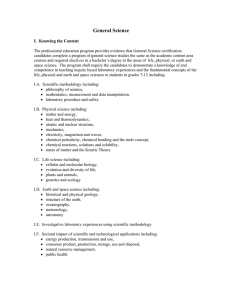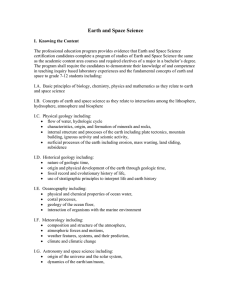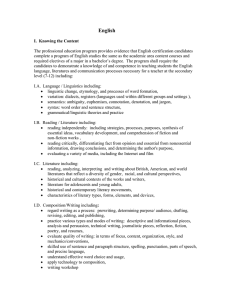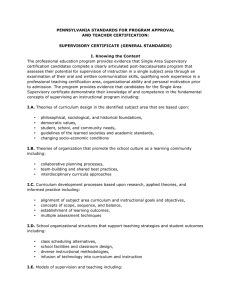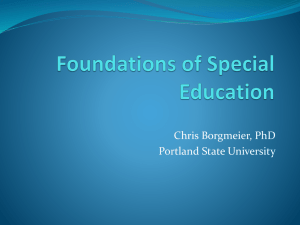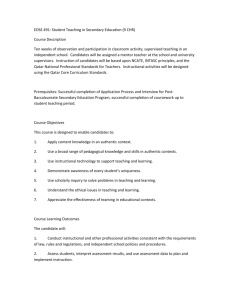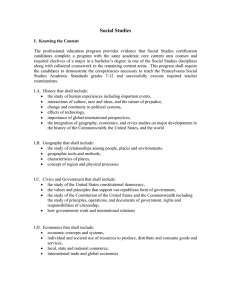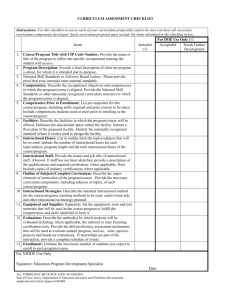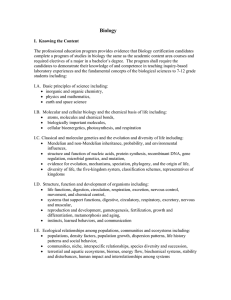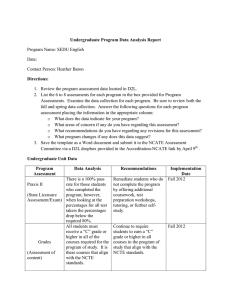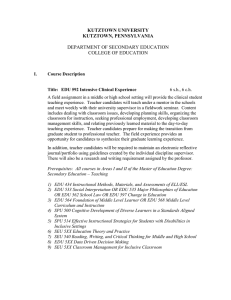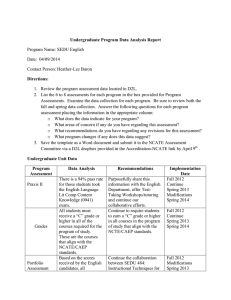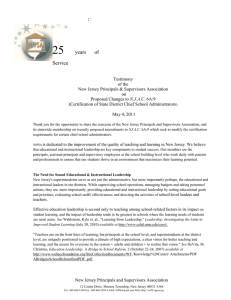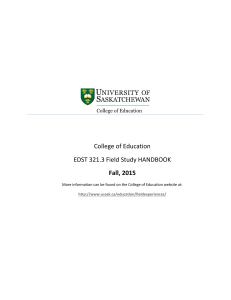Physics
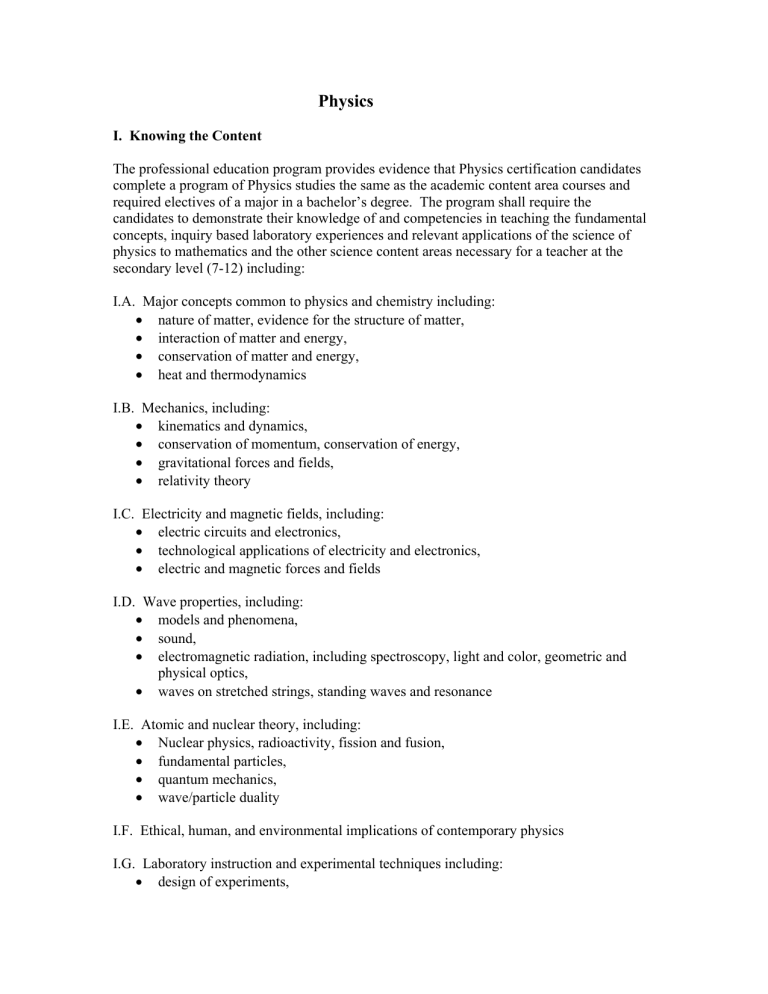
Physics
I. Knowing the Content
The professional education program provides evidence that Physics certification candidates complete a program of Physics studies the same as the academic content area courses and required electives of a major in a bachelor’s degree. The program shall require the candidates to demonstrate their knowledge of and competencies in teaching the fundamental concepts, inquiry based laboratory experiences and relevant applications of the science of physics to mathematics and the other science content areas necessary for a teacher at the secondary level (7-12) including:
I.A. Major concepts common to physics and chemistry including:
• nature of matter, evidence for the structure of matter,
• interaction of matter and energy,
• conservation of matter and energy,
• heat and thermodynamics
I.B. Mechanics, including:
• kinematics and dynamics,
• conservation of momentum, conservation of energy,
• gravitational forces and fields,
• relativity theory
I.C. Electricity and magnetic fields, including:
• electric circuits and electronics,
• technological applications of electricity and electronics,
• electric and magnetic forces and fields
I.D. Wave properties, including:
• models and phenomena,
• sound,
• electromagnetic radiation, including spectroscopy, light and color, geometric and physical optics,
• waves on stretched strings, standing waves and resonance
I.E. Atomic and nuclear theory, including:
• Nuclear physics, radioactivity, fission and fusion,
• fundamental particles,
• quantum mechanics,
• wave/particle duality
I.F. Ethical, human, and environmental implications of contemporary physics
I.G. Laboratory instruction and experimental techniques including:
• design of experiments,
• data analysis and presentation,
• preparation of laboratory reports,
• operation of physics laboratory equipment, e.g., motion measuring devices, simple electronics equipment, optics equipment
I.H. Current research and practices on Physics pedagogy
II. Performances
The professional education program provides evidence of the candidates participation in sequential and developmental field experiences and student teaching, under supervision of college personnel and cooperating teachers who are well trained, have interpersonal skills and demonstrated competence in teaching physics. The program also provides evidence that the criteria and competencies for exit from the Physics certification program are assessed and require the candidates to demonstrate their knowledge of and competence in fostering student learning through:
II.A. Managing the instructional environment including:
• creating a climate that promotes fairness,
• establishing and maintaining rapport with students,
• communicating clear, challenging expectations to each student,
• establishing and maintaining consistent standards of classroom behavior,
• creating a safe environment conducive to learning,
• using instructional time effectively
II.B. Planning instruction which promotes problem analysis, critical thinking, creativity, leadership development and decision-making based upon:
• subject matter, organization and integration of content and its relationship to education, career and life goals,
• students and their learning, motivation, supervision and guidance with emphasis on human behavior and development, individual differences, diversity and the special needs of students,
• professional organization guidelines,
• Pennsylvania Academic Standards
II.C. Selecting, analyzing, modifying and incorporating instructional materials to meet the learning needs and reading level of diverse learners, including:
• curriculum resources and technology,
• hands on laboratory experiences
II.D. Monitor student progress and performance and adjust instructional strategies through a variety of assessment tools in order to strengthen the effectiveness and quality of instruction for improved student learning
III. Professionalism
The professional education program provides evidence that Physics certification candidates demonstrate knowledge and competencies that foster professionalism in school and community including:
III.A. Professional organizations and associations, professional publications and journals, materials, and resources
III.B. Integrity and ethical behavior, professional conduct as stated in Pennsylvania’s Code of
Professional Practice and Conduct for Educators; and local, state, and federal laws and regulations
III.C. Cultivating professional relationships and collaborating with school colleagues, organizations and other community agencies to improve student learning
III.D. Communicating effectively with parents/guardians, business and industry, and other agencies, and the community at large to support learning by all students
